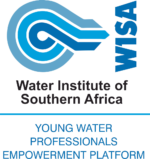Lina Lukasa
Water is a fundamental right that cannot be taken away from citizens; rather, the flow is restricted so that the consumer has a trickle flow instead. In South Africa, there is a policy called Free Basic Water Access.
According to the South African Constitution, every citizen is entitled to a certain amount of water regardless of his ability to pay for it; this policy defines the amount of entitlement be 6000 liters per household per month.
However, many local Water Service Providers (WSPs) are ineffective at determining what amount of water people use per month in rural areas because of a lack of effective monitoring devices. By not monitoring water usage, they are unable to determine when a water line has broken or how much to charge water users when they go beyond 6000 liters a month. Broken water lines can be traced to well over 20 percent of all “stolen” or lost water thus South Africa loses much of its available water supply due to communication errors and poor infrastructure. This greatly increases non-revenue water: water that has been distributed but that is not paid for because it did not reach the end consumers or was not recorded by meters. Non-Revenue Water estimated for the country as a whole is 36.8%. A nationwide instalment of smart water meters, or a device that measures water flow into a household, would help account for missing water and how much water is available for distribution.
Smart Water Metering (SWM) technology allows utilities and consumers to engage in two-way communication. These meters help water suppliers to enhance their water distribution network and incorporate robust water conservation & management practices. SWM provides high resolution and frequent water consumption data, which can be used to improve feedback to consumers and thus enhance water conservation and management. SWM reduces the risk of non-payment and overcomes the problems of inaccurate billing and loss of revenue. SWM and the rollout of a proven management platform accomplish this by having real-time two-way communication between the meter and a master system. This allows for live monitoring of tampering and bypassing of meters. It ensures the ability to measure water used by the consumer on a ‘live’ basis to monitor demand and distribution losses and the ability to disconnect and re-connect service remotely. Houses can then be billed appropriately, and money can be collected for extra water usage. Water utility companies can monitor water usage in consumers’ home throughout remotely. The utility companies can notice spikes in water consumption and issue a consumer with a warning. This helps curb water wastage.
There is also a need in South Africa for meters that require high accuracy and little or no maintenance, especially in more rural municipalities were resources are spares. Mechanical water meters, which constitute most meters used in South Africa, experience a degradation of accuracy over time, mainly due to wear and tear of the moving parts This degradation functions several factors, such as poor water quality, abnormal water velocities, excessive throughput volumes or flow rates, sub-optimal installation, and poor meter handling. The assumption that meter aging, on its own, makes water meters less accurate leads to the erroneous hypothesis that revenues are lost because the consumption of water is not accurately recorded by aging meters. Therefore, the precision and longevity of static meters are proving worthwhile. These meters are very accurate as they measure the flow with ultrasonic technology, which reduces the payback time significantly.
Technology is critical in ensuring that the meter readers provide accurate information on the reading they do. There have been anecdotal reports that some meter readers might have entered data without actually reading the meters on the premises. Also, some consumers exceed the recommended water restrictions enforced for water-saving purposes. Smart metering thus can play a pivotal role in the effective management of scarce water resources and infrastructure through timely and accurate measurement of the meters.
